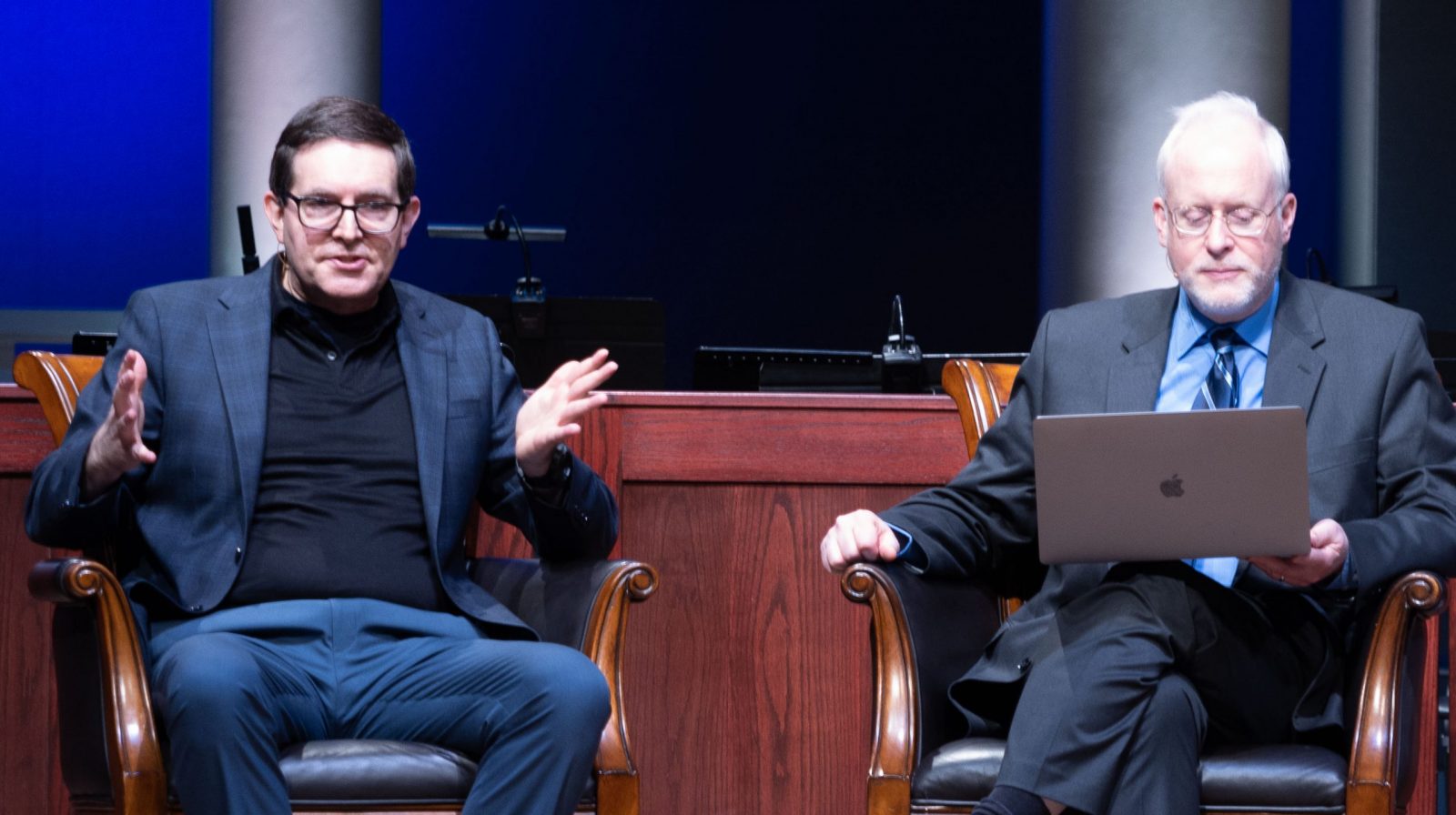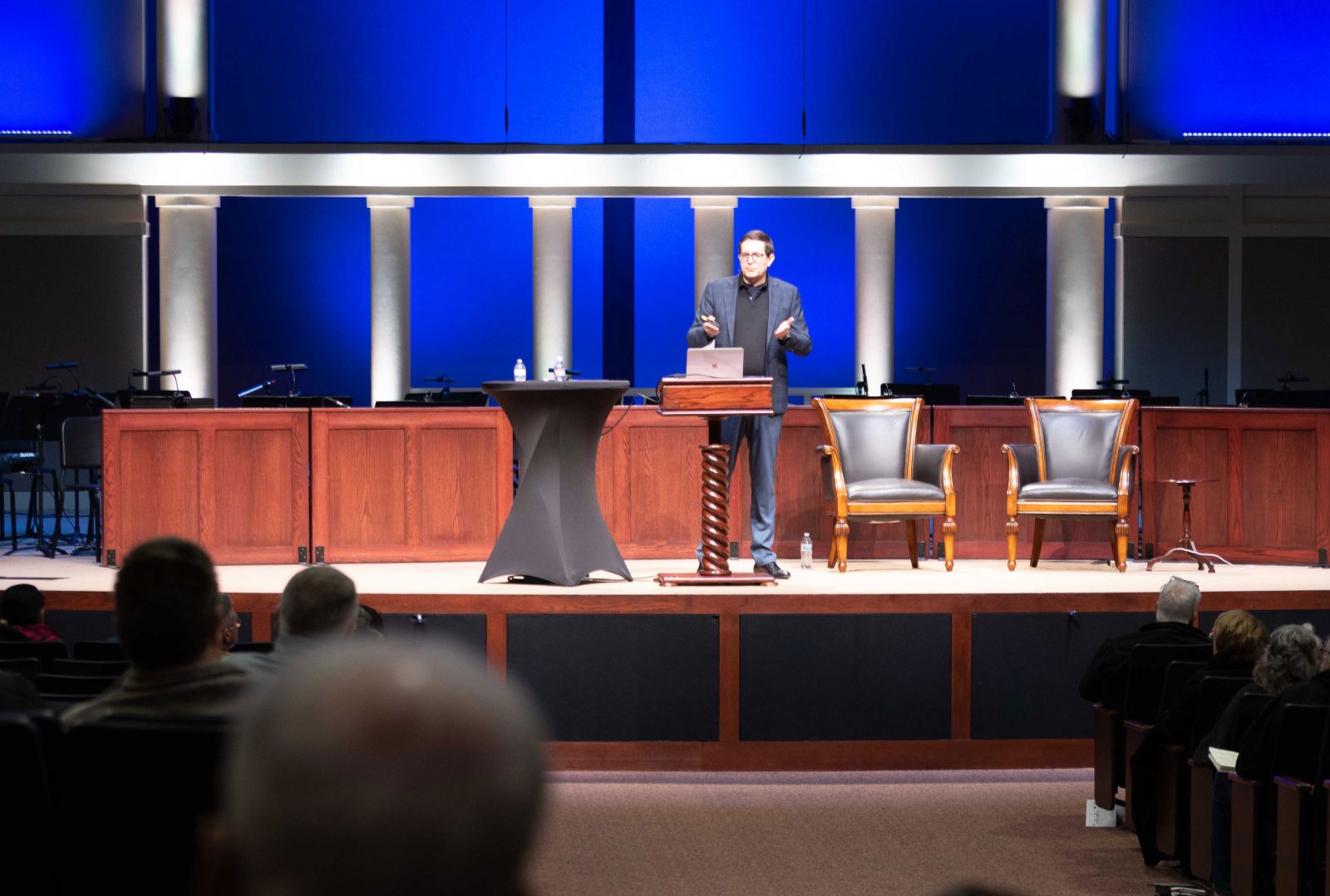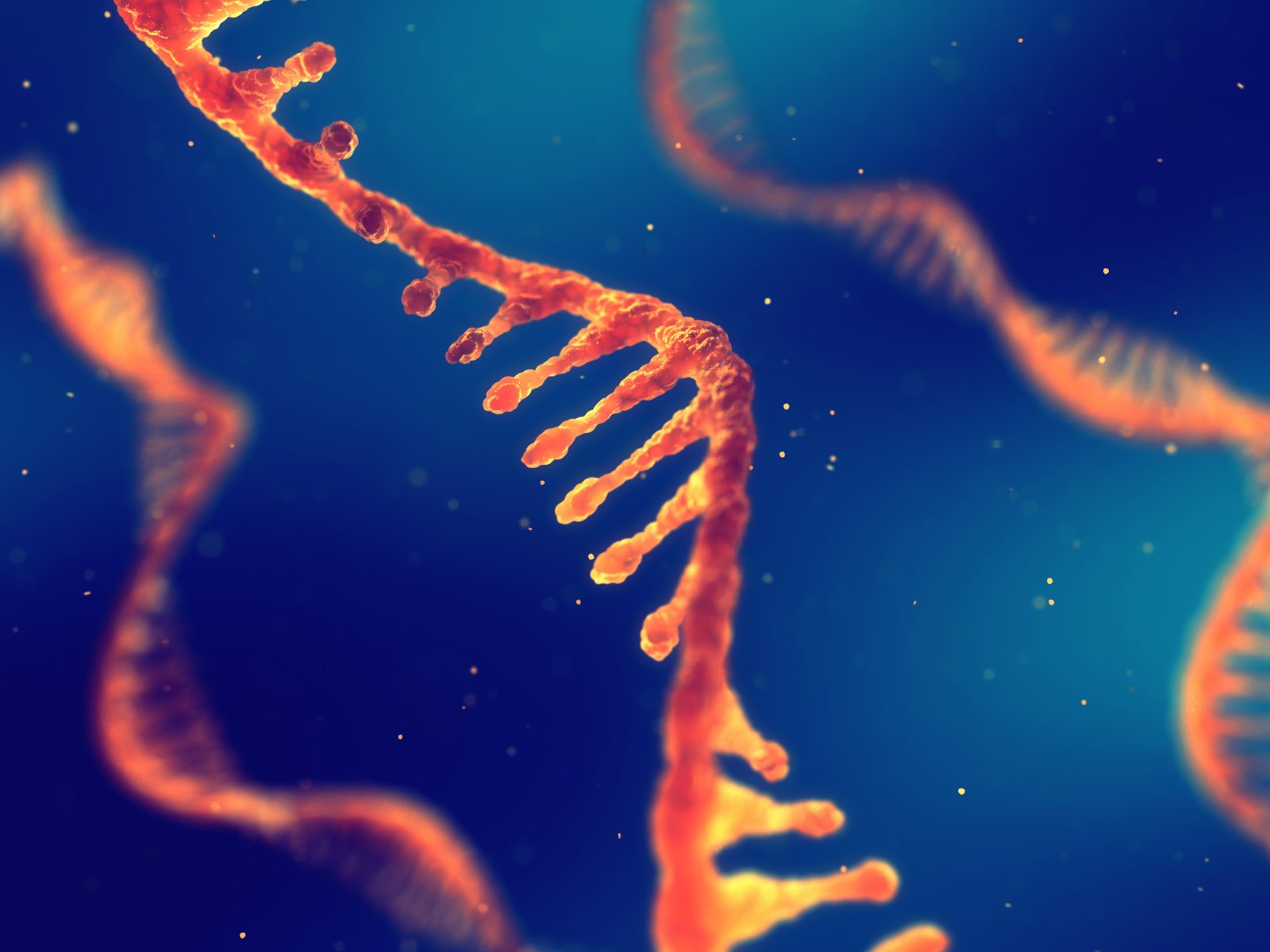


Brian Miller Q&A: Engineering in Biology, and THE Engineer
On today’s ID the Future, host John West sits down with physicist and engineer Brian Miller to pitch him questions submitted at the Dallas Conference on Science and Faith. Is the Bible against the pursuit of knowledge about the natural world, or for it? Are microevolutionary changes in various organisms consistently driven by random mutations and natural selection, or instead, are some made possible by pre-programming in the organism, programming that gives the organism a built-in flexibility to adapt to its environment, within limits? If living systems were deliberately engineered, how good of an engineer was the engineer behind living systems? And if so, what are the implications for the evolution/design debate? Also, what do engineering insights regarding optimization processes tell us about unguided evolution’s ability (or inability) to generate macroevolutionary change? Tune in as Miller answers these and other questions.

Brian Miller: The Surprising Relevance of Engineering in Biology
Today’s ID the Future brings listeners physicist and engineer Brian Miller’s recent lecture at the Dallas Conference on Science and Faith, “The Surprising Relevance of Engineering in Biology.” Miller rebuts several popular arguments for evolution based on claims of poor design in living systems, everything from the “backward wiring” of the vertebrate eye to whales, wrists, ankles, and “junk DNA.” But the main emphasis of this discussion is the exciting sea change in biology in which numerous breakthroughs are occurring by scientists who are treating living systems and subsystems as if they are optimally engineered systems. Some in this movement reject intelligent design for ideological reasons. Others embrace it. But all systems biologists treat these systems as if they are masterfully engineered systems, and that perspective is rapidly accelerating progress in experimental biology. At the forefront of this work is the Conference on Engineering in Living Systems (CELS). Miller provides an exciting sneak peek at some of the cutting edge research from members of this group.

Origin-of-Life Mystery at the University of Tokyo, Pt. 2
Today’s ID the Future is Part 2 of physicist Brian Miller exploring a recent report from the University of Tokyo claiming a big breakthrough in origin-of-life research. As Miller and host Eric Anderson make clear, the university’s laboratory work on RNA, detailed in a recent Nature Communications article, involved the intelligent interference of the lab scientists and, despite this intelligent interference, the devolution of RNA rather than the evolution of increasing RNA sophistication. Miller says that it’s ironic that Steven Novella, a scientist committed to puncturing science hype, seems to have fallen for the hype surrounding this laboratory work. Miller and Anderson go on to discuss critiques of origin-of-life tall-tale claims, critiques coming Robert Shapiro, James Tour, and others. Life, Miller says, requires organizational blueprints and design logics already in place to battle against nature’s relentless tendency toward entropy. Without those sophisticated organizational blueprints already instantiated in living cells and sophisticated molecular machinery, natural forces appear utterly powerless to pull off the kind of creative design work required to move from non-life to life.

Did U of Tokyo Just Solve the Mystery of Life’s Origin?
On this ID the Future, Brian Miller, research coordinator for the Center for Science & Culture, reports on laboratory research recently presented in Nature Communications and in a University of Tokyo press release— research that supposedly provides dramatic “new insights into the possible origin of life,” and specifically “the molecular evolution of RNA.” The popular press picked up on these claims and ran with them, including in this May 5 Quanta article that breathlessly reported, “When researchers gave a genetic molecule the ability to replicate, it evolved over time into a complex network of ‘hosts’ and ‘parasites’ that both competed and cooperated to survive.” Miller says nothing remotely this dramatic occurred in the experiment. He insists there were no great revelations from this laboratory work, aside perhaps from it further corroborating the view that precisely orchestrated interventions of an intelligent designer (in this case, that of the lab researchers) are required in order to make any headway on the road from non-life to life. But as Miller’s conversation with host Eric Anderson suggests, even that might be to exaggerate what the University of Tokyo experimenters accomplished, since the RNA “evolution” they achieved was actually devolution. Tune in as Miller and Anderson break it down. And for more, check out Miller’s Evolution News article on the subject.

Physicist Brian Miller Answers the Big Bang Evaders
On this ID the Future, physicist Brian Miller looks at various attempts to evade the mounting evidence that the universe had a beginning, a Big Bang. Miller and host Casey Luskin first review the fascinating history of how the eternal universe model of the nineteenth century gave way to the Big Bang model. Then Miller walks through about a half a dozen attempts to evade a cosmic beginning after the Big Bang model had won the day. These evasions include the steady state model, the idea of an eternal cyclical universe, and the string landscape model. According to this model, our universe exists in a multi-dimensional brane (not “brain”) which exists in a higher dimensional space, and our multi-dimensional brane can collide with other branes, with each collision creating a Big Bang moment, a process said to have been going on for all eternity. Miller then explains why each of these attempts to evade a true cosmic beginning fail, and he says that if matter, energy, and space came into existence at the moment of the Big Bang, then it follows that the cause of this cosmic beginning is something immaterial. And since the cosmic beginning was finely tuned in many astonishing ways, Miller says, the cause of the Big Bang has left the signature of intelligent design. The cause, then, is an intelligent, immaterial being and one, obviously, of unimaginable power. Miller and Luskin then touch on a final attempt to evade these implications, the idea that the universe could have popped into existence from nothing—no God, no anything. But as Miller shows, the proposals along these lines, offered by such physicists as Lawrence Krauss and Stephen Hawking, do not actually start from nothing. There is always a something at the ground state, a something whose origin is left unexplained. The occasion for the conversation is Miller’s essay in the recent Harvest House anthology, The Comprehensive Guide to Science and Faith: Exploring the Ultimate Questions About Life and the Cosmos.

Engineers Crash the Evolution Party, Rethink Biological Variation
On today’s ID the Future, physicist and engineer Brian Miller sits down with host Casey Luskin to survey exciting developments in intelligent design research that are driven by an engineering model for understanding and studying variations in species. ID researchers are pushing this work, but so too are systems biology researchers outside the intelligent design community. Tune in to hear Miller and Luskin discuss everything from fruit flies, finch beaks, and stickleback fish to mutational hotspots, phenotypic plasticity, and the gravity well model of biological adaptation.

Physicist Brian Miller Talks Nanotech, Origin of Life, and Area 51
On today’s ID the Future physicist Brian Miller and host Eric Anderson continue their exploration of a recent conversation between origin-of-life investigators Jeremy England and Paul Davies on Justin Brierley’s Unbelievable? radio show. Miller begins with a quick flyover of the many nanotechnologies essential to even to the simplest viable cell. A minimally complex cell is vastly more sophisticated than our best human nanotechnology. What about England’s insistence that real progress has been made in origin-of-life studies since the 1950s? True, Anderson says, but the progress has been principally in better understanding how the simplest cells function, and in figuring out what doesn’t work to blindly evolve life from non-life. That is, the direction of discovery has been to throw cold water on one idea after another for the naturalistic origin of life. Miller then makes an even bolder statement. All the physics for us to have known this were in place more than a hundred years ago. The origin-of-life community just chose to ignore it, perhaps because they were dogmatically wedded to finding a purely materialistic explanation for the origin of the first life. To show why that’s misguided, Miller offers an illustrative story: Imagine that what looks for all the world like an alien spaceship is discovered in the desert. Two groups of scientists decide on radically different approaches to understanding the workings of this mysterious object. Tune in to hear the rest of the story.

Dissecting an Unbelievable Conversation about Abiogenesis
On today’s ID the Future physicist Brian Miller and host Eric Anderson explore a recent conversation between physicists Jeremy England and Paul Davies on Justin Brierley’s Unbelievable? radio show. Davies admitted he doesn’t want the origin of life to require divine design, while England argued that his work on non-equilibrium systems offers a promising avenue for explaining the origin of the first life in naturalistic terms. Miller and Anderson demur on both counts. They hold out hope that Davies, having recognized his philosophical bias, will eventually decide to follow the evidence wherever it leads, even if doing so has theistic implications. And as for Jeremy England’s approach, Miller says it’s fascinating work but fails to solve the origin-of-life challenge in naturalistic terms, and for multiple reasons.

More on James Tour’s Abiogenesis YouTube Series
On today’s ID the Future, physicist Brian Miller continues his review of James Tour’s origin-of-life YouTube series. As Miller explains, Tour, a world-renowned synthetic organic chemist and professor at Rice University, was inspired to create the series when YouTuber and evolutionist Dave Farina critiqued Tour’s critique of contemporary origin-of-life claims. In reviewing Tour’s video series, Miller and host Eric Anderson praise the Tour series and discuss the Levinthal paradox of the interactome, the ridiculously long odds of blind processes assembling the first living cell, and the challenge of cell death (think Humpty Dumpty and what all the king’s men couldn’t do). Also discussed: entropy, molecular machines, the challenges that Brownian motion and homochirality pose, the presence of intelligent design in attempts by origin-of-life researchers to assemble cellular building blocks, and a poll showing that the public has been misled into believing that researchers have created simple life, and even frogs, in the lab.